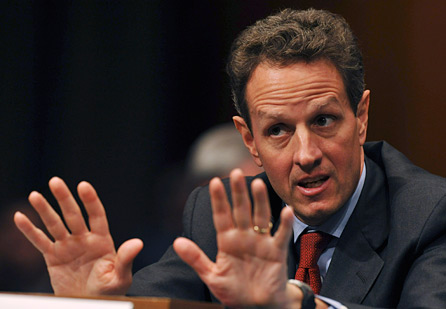No reason, we just think they look incredibly cool. They have a taxonomic family all to themselves. Not quite deer, not quite elk.
And it is a crime that not a single one of the western and central states where the pronghorn lives has chosen to make it its state mammal. The desert bighorn sheep, while impressive, doesn’t captivate us quite like Antilocapra americana, the Western Hemisphere’s fastest land animal.
On with the show. The weekly Carnival of Wealth, a roundup of personal finance blog posts. Some good, some awful, none dull. Away we go…
(First 2 posts out of the gate were garbage. This bodes horribly.)
We usually save this guy to the end, but we needed some early fortification. Mich at Beating the Index returns with a breakdown of Renegade Petroleum, a junior producer that’s recently made some promising finds in the vastnesses of Alberta and Saskatchewan. This post is technical, it’s loaded with visually appealing charts, and like most of Mich’s work, it’s best inhaled in one concentrated sitting. Read it and learn something.
Come on. Seriously? Carol J. Alexander at Christian PF lists, and we quote, “7 Safe Places To Keep Cash Hidden In Your Home.” Yes, cash is technically a personal finance topic, but enough already. All 7 of them are insane, or at least on the list of the first places a thief will look, but nothing beats this one:
4. A package in the freezer.
Save a frozen vegetable bag. Fill it with a few packing peanuts and your cash in a zip shut bag. Twist tie it shut as you would any other half-used bag. Hide it in the back of the freezer—as though it was forgotten. No thief is going to want your half-bag of old broccoli cuts.
There are 115 million households in the United States, and presumably a similar number of freezers. NOBODY is using, or will ever use, Ms. Alexander’s inventive if crazy tactic. Even Trent Hamm would find this to be an egregious waste of a twist tie. BONUS: She refers to “ATM machines (sic)”.
(A post about traveling with your pet.)
(A post about how Warren Buffet [sic] is a genus [sic], and at this point we wonder why the old man doesn’t just elide one of the t’s in his name since most people misspell it anyway.)
(“Documents you need to travel to Canada”, submitted twice. Driver’s license and passport. Go figure.)
(A post on Roth IRAs.)
HEY! Finally, something on-topic! PKamp3 at DQYDJ.net to the rescue. Want to contribute $30,000 to your Roth IRA? You can, and it requires you to jump through only a couple of (wide, non-flaming) hoops. Unless you’re one of those people who dig paying more taxes than they have to – and apparently, they exist – this post is for you.
Made up your mind that you’re going to college, huh? Nothing’s going to dissuade you? The financial lunacy of doing so* notwithstanding, Teacher Man at My University Money has a list of recommendations for incoming freshmen. He also references the “Freshman 15”, which we assumed Canadians would refer to as the “Freshman 7”. Thirty-five years of metrification and you folks still don’t weigh yourselves in kilograms? What are you waiting for?
Takeaways from Teacher Man’s post:
- like it or not, GPA is important
- party as hard as you can, as fast as you can, so you can get it out of your system.
That second one might sound crazy, but then so does playing rugby without padding. Or forcing your kid to smoke the entire carton when you catch him with a cigarette. If you look at the above radical ideas from a distance, they start to make sense. And God knows the routine of killing every Sunday by waking up hungover and swearing that Monday will be different doesn’t work.
Joe Morgan once said that
A lot of star players get booed in opposing stadiums.
His namesake at Simple Debt Free Finance is more profound. He asks if paying off your mortgage early is a good idea. Unless it’s a bad idea.
Wait, it’s more complex than that. Obviously, you want to look at your interest rate, opportunity cost etc. If you can find an investment that pays 5% while your mortgage is 4%, especially when the latter allows you to deduct your mortgage interest, Bob’s your uncle. But on the other hand, paying it off early will give you peace of mind that…
Joe never bothers coming to a conclusion (“Paying off your mortgage early is a personal choice and depends on your financial and emotional situation.”), so we’ll do it for him. Going into debt for an asset like a house makes sense if you’re going to do something with the cash it frees up. At least in today’s economy, with mortgage rates at historic nadirs, you can find something to invest in that’ll make it worth your while to keep your mortgage for its entire term. If this were 1976, and mortgage rates were at 18%, we’d have a different opinion.
We’ve been skeptical of Chris Guillebeau for a while, not because he follows his dreams but because he implores the unprepared and the unserious to join him on this adventure. It’s that whole Tim Ferriss-inspired call to live life on your own terms, screw The Man, drop out of society and see the world at your leisure. Which is fine, if you know what you’re doing. Most people don’t.
Free Money Finance thinks otherwise and has reviewed Guillebeau’s book. At least in this instance, Guillebeau’s talking about the fun ways to make money, rather than to spend it. Free Money Finance is sold, so much so that he took the rare step of reading a hard copy of Guillebeau’s book and making notes in it.
John Kiernan at Wallet Blog has a knack for making even depressing news entertaining.
First, a diatribe. Don’t kid yourself that American politicians, at least the majority of them, care about entrepreneurism. The more oligopolies we have, the happier the politicians are. (After all, who would you rather solicit donations from – 100,000 neighborhood dry goods stores, or one guy at Target?)
This goes triple for banks. Small, community banks are hogtied by the FDIC to an extent that no major bank would ever stand for. And on the last day of 2012, the regulators could stop insuring some business deposits at small banks. They’ll do it at large banks too, but the obvious and intended result is that people will shift their money from First National of Butcher Holler to Citi or Chase. That’s the dystopian future that John foresees, and that neither a Republican nor a Democrat administration will bother to remedy. (Assuming we don’t see the mother of all political comebacks this fall.)
The lovely Liana Arnold at Card Hub warns us against what can happen if you go to binding arbitration against a credit card issuer. The Supreme Court ruled that card issuers can resolve issues via arbitration, rather than granting you the cardholder your day in court. That the arbiters are paid by the card companies is no reason to think that any decisions would be biased, not at all. But there is a way out, and it involves (oh God, here we go again) personal responsibility:
the only way to truly protect yourself from being taken to court or arbitration by a credit card company is to pay your bills.
Devastating concept, isn’t it?
British lenders let you miss a month on your mortgage payment. They just add it to the end of the term, of course with interest. Well, we’ll be dipped. Adam Buller at Money Bulldog center-justifies his way to a shocking conclusion regarding this shocking practice.
Almost there. Dan at ETF Base assesses a new exchange-traded fund, the AdvisorShares Global Alpha & Beta ETF. Mix 3 parts S&P 500 with 2 parts aggregate bond index, mix well. Except right now the proportions are more like 7-to-1. The fund incorporates a “death cross”, whereby its long-term moving average has outpaced the short-term one. Not necessarily portending a bear market, but you can smell one from here.
Finally, Greg Field introduces the new interest rate monitor at Nerd Wallet. It’s a list of deposit accounts that beat inflation by varying margins. It’s basically a bunch of links to some credit unions, but who cares? We’ve got an economy to keep alive here.
We’re on Twitter. We’re on Facebook. We’re in Investopedia, on Yahoo! Finance (in the Philippines, no less!), and on ProBlogger. Tomorrow, a new Anti-Tip of the Day. Wednesday, a new post. Friday, another new post. Monday, another CoW. Repeat as desired. Thanks for coming.
*Unless you’re majoring in the hard sciences, of course.





